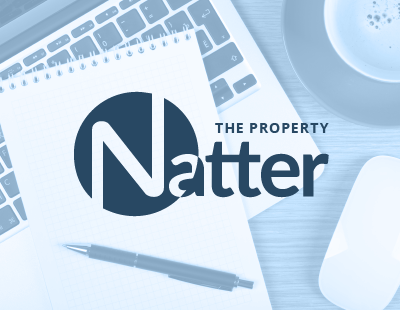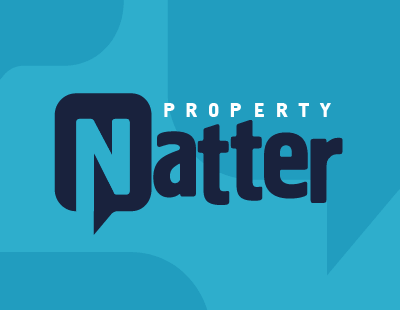While a company like Ryanair has long followed the ‘all publicity is good publicity’ mantra and batted off bad PR (note the parallels with Purplebricks), it was able to get away with this by offering a cheap, fast, efficient, no-frills service.
The latest scandal, however – with a massive administrative foul-up leading to the cancellation of hundreds of thousands of flights and the resignation of the firm’s operations chief – has planted seeds of doubt in the minds of consumers about the thing Ryanair prides itself on above all else: efficiency.
Consumers, perhaps unhappy at Ryanair’s other practices, were willing to overlook these for cheap fares and efficiency. If, though, that main selling point starts to be questioned, even brands like Ryanair - who have become so expert at deflecting criticism – could find themselves in bother.
A tainted brand is one of the worst things possible for any business, none more so than in the property world. It’s an industry that relies on trust, reliability, human interaction and well-built reputations. It’s like a person returning to their favourite restaurant on a regular basis. If they know they can be guaranteed good service, a quality product and reasonable prices for a job well done, they will keep returning.
If, as an agent, you provide an excellent service, customers are likely to use you again and may also recommend you to family, friends and work colleagues. Word of mouth – and, increasingly, good online reviews and positive exposure on social media – is likely to help your business and reputation to grow.
At Angels Media we’ve witnessed it first-hand with the growth of The ValPal Network. We started off small, slowly but surely built up our reputation, became the go-to for instant online valuation tools, encouraged competition, diversified our services to stay ahead of this competition, and then expanded to become a nationwide – and respected – brand. With ValPal, we’ve embraced the PropTech boom and appreciated the importance of reputation; of building a respected, trusted product and brand.
Will housing go green?
There’s been plenty in the news recently about the growth of renewables – solar, wind, tidal, wave, geothermal, hydro, biomass, etc – and how governments around the world are focusing more and more on these forms of energy over traditional fossil fuels such as gas, coal and oil, or energy generated from nuclear reactors.
Eco-friendly homes are already in existence, and any new-build home these days has a heavy emphasis on energy efficiency and greener credentials, but what will the houses of the future look like?
Will they all have solar panels as standard? Will they be powered entirely by renewable energy? Will rainwater harvesters, air pumps, eco-friendly heating systems, bio-cleaning windows, underfloor heating and extensive insulation become mainstream?
Currently, eco-friendly homes are pricey and niche. But with green issues becoming more important to buyers, tenants and governments, and new regulations coming into play, the move towards greener homes seems inevitable – and the forward-thinking house-builders and agents catering to this demand will be the ones to benefit.
Is a fully digital press the future?
A few weeks ago I received through my letterbox the last ever copy of the Yellow Pages – a once national institution that has become the latest victim of the internet age. As the video store killed the radio star, DVD saw off VHS and online streaming is starting to see off DVDs, the internet has mostly done for brochures and catalogues. Some still exist, of course, but most – including Argos, IKEA and Littlewoods – are increasingly focusing their operations online.
When you have Google, what purpose does the Yellow Pages serve? It’s something the printed press also has to contend with. The other day Glamour magazine announced that it is going digital first and cutting back its print editions to just two a year, while in recent years lads’ mags and certain newspapers – including the Independent, London Lite, The London Paper and many local ones – have bitten the dust or moved online.
Circulation of the major newspapers has decreased, with the likes of the Guardian and MailOnline now focusing much more on online content. They may be total opposites when it comes to readership and ideology, but when it comes to visitor numbers these publications are – along with the BBC – the dominant parties in the UK.
Of course, the printed press won’t be dying out anytime soon – you only need to look at the plethora of magazines on offer in shops to see their enduring popularity. What is an undeniable truth, though, is the fact that young people consume news online and often via social media. On the whole, young people simply don’t buy papers or magazines in the same way as their parents or grandparents.
There is now a whole generation who have grown up with the internet, social media and smartphones – that’s all they know and they see nothing odd or strange about consuming their news entirely through these mediums.
The demand for online news was at the forefront of my thinking when I first created Estate Agent Today and Letting Agent Today – taking trade news online. Now it’s the norm. It allows for breaking news stories, regular updates, comments, engagement and interaction.
The desire for news will never go away, but the way in which we consume it will surely continue to undergo a rapid evolution. Is the prospect of a fully digital press in the next 30 years or so really that unrealistic? At the very least, it will be the most influential, most widespread and most widely read.
That’s that from me. Until next time…
*Nat Daniels is the Chief Executive Officer of Angels Media, publishers of Estate Agent Today and Letting Agent Today. Follow him on Twitter @NatDaniels.























Join the conversation
Jump to latest comment and add your reply
good sagacity in the future of publishing and the importance brand reputation!
Please login to comment